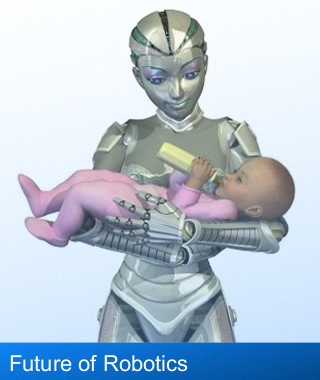Firstly, given the novelty of chatbots in educational research, this study enriched the current body of knowledge and literature in EC design characteristics and impact on learning outcomes. Even though the findings are not practically satisfactory with positive outcomes regarding the affective-motivational learning outcomes, ECs as tutor support did facilitate teamwork and cognitive outcomes that support project-based learning in design education. In view of that, it is worth noting that the embodiment of ECs as a learning assistant does create openness in interaction and interpersonal relationships among peers, especially if the task were designed to facilitate these interactions. Subsequently, the chatbot named after the course code (QMT212) was designed as a teaching assistant for an instructional design course. It was targeted to be used as a task-oriented (Yin et al., 2021), content curating, and long-term EC (10 weeks) (Følstad et al., 2019).
Binance Adds AI-Powered ‘Sensei’ Chatbot to Its Crypto Academy – Decrypt
Binance Adds AI-Powered ‘Sensei’ Chatbot to Its Crypto Academy.
Posted: Mon, 24 Apr 2023 07:00:00 GMT [source]
Finally, the chatbot discussed by (Verleger & Pembridge, 2018) was built upon a Q&A database related to a programming course. Nevertheless, because the tool did not produce answers to some questions, some students decided to abandon it and instead use standard search engines to find answers. Only four (11.11%) articles used chatbots that engage in user-driven conversations where the user controls the conversation and the chatbot does not have a premade response. For example, the authors in (Fryer et al., 2017) used Cleverbot, a chatbot designed to learn from its past conversations with humans.
What is the future of AI and educational chatbots?
The UK Cabinet wanted to run a campaign to reach out to students, especially from underrepresented sections of society, and encourage them to take more interest in STEM studies. Which means, it is absolutely necessary for every institution to always guide their students thoroughly by giving them timely and accurate information. The bot guides each and every student and provides metadialog.com relevant information to them. Their responses are stored for the consultancy to look at and take the standard operating procedure (SOP) further from here. Students are often found entering search queries like ‘do my assignment’ to find an assistant who can help them in completing their assignment or to get a clearer explanation of a specific topic they are struggling with.
For more ideas, reach out to the Digital Learning Solutions team at GSE IT. Feedback chatbots also afford a more informal, collegial environment for sharing concerns and successes in a course. This can be helpful when asking for feedback about more delicate topics like points of confusion or a sense of belonging. The more informal environment and gradual, directed questioning via turns of conversation can establish a more personable channel through which to share insights. People prefer chatbots because of their ability to provide quick replies to simple questions.
Perception of learning
The advantage of chatbots in education is improving the learning experience (Okonkwo and Ade-Ibijola, 2021). We discovered that mind mapping strategy using AI chatbots provides EFL learners with a practicing environment inside and outside the classroom by identifying the meanings of users’ statements and responding accordingly (Lin and Mubarok, 2021). This strategy processes words into a picture with a core word at the center or the top and related words or images linked with the keywords by lines. Students who use mind mapping perform better academically and can think more logically (Swestyani et al., 2018).
The questionnaires used mostly Likert scale closed-ended questions, but a few questionnaires also used open-ended questions. Most articles (13; 36.11%) used an experiment to establish the validity of the used approach, while 10 articles (27.77%) used an evaluation study to validate the usefulness and usability of their approach. The remaining articles used a questionnaire (10; 27.7%) and a focus group (3; 8.22%) as their evaluation methods. Pérez et al. (2020) identified various technologies used to implement chatbots such as Dialogflow Footnote 4, FreeLing (Padró and Stanilovsky, 2012), and ChatFuel Footnote 5. The study investigated the effect of the technologies used on performance and quality of chatbots. Concerning the platform, chatbots can be deployed via messaging apps such as Telegram, Facebook Messenger, and Slack (Car et al., 2020), standalone web or phone applications, or integrated into smart devices such as television sets.
Superior User Experience and Learning Outcomes
Theoretical, descriptive, observational, and non-experimental studies were excluded from the search as the main aim was to look for empirically verified findings. The search was conducted in two well-established databases, i.e., Scopus and Web of Science, in the titles of the articles, their abstracts, and keywords as this is sufficient to generate a reliable and adequate core of articles to be further analyzed. Future studies should explore chatbot localization, where a chatbot is customized based on the culture and context it is used in. Moreover, researchers should explore devising frameworks for designing and developing https://www.metadialog.com/blog/chatbots-in-education-sector/ to guide educators to build usable and effective chatbots.
How much better if our classwork on paper involves questioning, free writing, sketching, and planning. ChatGPT could thereby create more in-class writing time with the teacher coaching and conferring rather than just preventing or policing AI assistance. – More than sixty percent believe that the use of chatbots during examination is cheating; this is not the case for other AI-language tools. However, a majority of students is against the prohibition of AI in education settings. – More than half of the respondents express concern about the impact of chatbots in future education; concerns about other types of AI-language tools are much less pronounced. Chatbots increase student engagement by providing personalized and immediate responses to their questions.
Benefits Of ChatGPT For Students
Chatbot adoption is especially crucial in online classes that include many students where individual support from educators to students is challenging (Winkler & Söllner, 2018). Moreover, chatbots may interact with students individually (Hobert & Meyer von Wolff, 2019) or support collaborative learning activities (Chaudhuri et al., 2009; Tegos et al., 2014; Kumar & Rose, 2010; Stahl, 2006; Walker et al., 2011). Chatbot interaction is achieved by applying text, speech, graphics, haptics, gestures, and other modes of communication to assist learners in performing educational tasks. The first question identifies the fields of the proposed educational chatbots, while the second question presents the platforms the chatbots operate on, such as web or phone-based platforms. The third question discusses the roles chatbots play when interacting with students.
10 examples of artificial intelligence improving education – Interesting Engineering
10 examples of artificial intelligence improving education.
Posted: Thu, 11 May 2023 07:00:00 GMT [source]
A not-for-profit organization, IEEE is the world’s largest technical professional organization dedicated to advancing technology for the benefit of humanity.© Copyright 2023 IEEE – All rights reserved. These are three out of nearly two thousand optional comments from the survey which almost 6,000 students in Sweden recently participated in. Get to know people who talk with your chatbot and build better relationships. This article suggests a need for an even more critical revolution in education to emphasize the deep thinking that A.I.
Why Implement REVE Chat in Your Educational Institution?
Chatbots in the education sector can act as personal assistants and handle administrative tasks, answer student questions, facilitate online learning, etc. In this mini-review, we pointed out that self-regulatory learning was facilitated through the application of AI chatbots in language classrooms. Using adaptive learning environments and intelligent tutoring systems, chatbots encourage self-regulated learning by enhancing the individual learner’s experience (Mahmoud, 2022).
- For example, it could write personalized lesson plans for each student, or serve as an after-hours tutor.
- Virtually all the responding students are familiar with ChatGPT, the majority use the tool, and 35 percent use the chatbot regularly.
- After all, we all know that these educational chatbots can be the best teaching assistants and give some relief to educators.
- A chatbot can provide information and advice to prospective students, but it can also collect data from them.
- Only four (11.11%) articles used chatbots that engage in user-driven conversations where the user controls the conversation and the chatbot does not have a premade response.
- By constantly being available, during and after lectures to answer queries and allowing students and teachers to virtually exchange information about lectures, assignments, deadlines, presentations and other events and activities.
ChatGPT is an advanced chatbot that uses natural language processing and machine learning to communicate with students. Whether you’re struggling with a particular subject, or just need some advice on how to manage your time more effectively, ChatGPT can help. In this article, we’ll explore how ChatGPT is revolutionizing education and helping students achieve their goals. So, many e-learning platforms are using chatbots to instantly share students’ course-related doubts and queries with their respected teachers and resolve the problems at the earliest. This way students get a free environment to come forward and get a clearer view. It’s easy to take an entrance test, track students’ performance, short-list those who qualify and answer all their queries through the AI bots.











